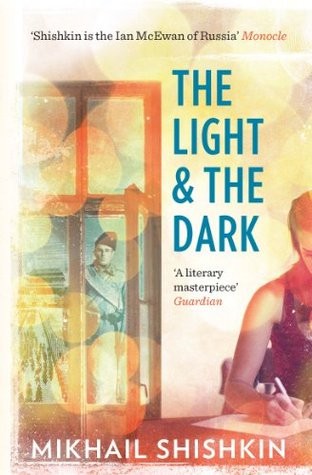
The Light and the Dark
- اطلاعات
- نقد و بررسی
- دیدگاه کاربران
نقد و بررسی

July 1, 2013
After being separated by war, a pair of lovers dream about their brief time together in Shishkin’s striking but sometimes confusing novel. Vladimir and Alexandra, known to each other respectively as Vovka and Sashenka, fell in love during a summer spent together in the countryside as teenagers. Now they write to each other recounting their days and reminiscing about the past. Both work as medics: Sashenka at home, monitoring a troubled couple, and Vovka in the army, on a campaign to China to help quell the Boxer Rebellion. He attempts to remain human in the face of war, often looking back to the town where he and Sashenka met or the books they used to share. Vovka and Sashenka narrate their histories apart as vivid snippets of memories, even as Shishkin reveals that, somehow, the two lovers live in different eras, with Sashenka inhabiting a time closer to our own than to Vovka’s. Despite this disorienting foray into mysticism, their tales cohere into a portrait of Russians growing up too soon, enlisted in causes not their own, exemplified by Sashenka’s belief in a second, disobedient self who lives out the dreams she can’t.

September 15, 2013
This novel by acclaimed Russian author Shishkin is an experimental work about two young lovers kept forever apart. The voices of the lovers alternate throughout the novel; usually Vovka or Sashka will begin with an endearment, but these are monologues, not letters--neither responds to the other. Think of them as ships that pass in the night, again and again. Once, they spent some time together in a Russian dacha. That's the extent of our knowledge of them as a couple, for Shishkin conceals as much as he reveals. Nor do readers know when this is happening, until they reach the only historical marker: the Boxer Rebellion of 1900. Vovka decides at the outset to "choose myself a war." He is assigned a position at staff headquarters, writing death notices to next of kin. As the army arrives in the Far East, there are some magic realist elements: an island that's a fish, people with dog heads. Indeed, the whole conflict in China has an otherworldly tinge, with seven Western nations allied against the anti-Christian Chinese peasantry. The high death toll, though, is uncomfortably real. Sashka's monologues concentrate on domestic matters: her marriage to a painter, her complicated relationship to his ex-wife and daughter, her attendance as a nurse on her mother, dying of cancer. In the constant tension between the life force and death, the scales are weighted toward death. Yet, in a significant moment, Sashka encounters a burning bush, an obvious Biblical allusion, and understands that she and Vovka "are already husband and wife." Outside of time, no doubt. It is also significant that the novel finds Vovka meeting Prester John, the Christian king of medieval legend whose territory the army had crossed en route to China and who will, maybe, effect the lovers' reunion. Shishkin expects his readers to do some serious decoding; whether it's worth the effort is an open question.
COPYRIGHT(2013) Kirkus Reviews, ALL RIGHTS RESERVED.




دیدگاه کاربران